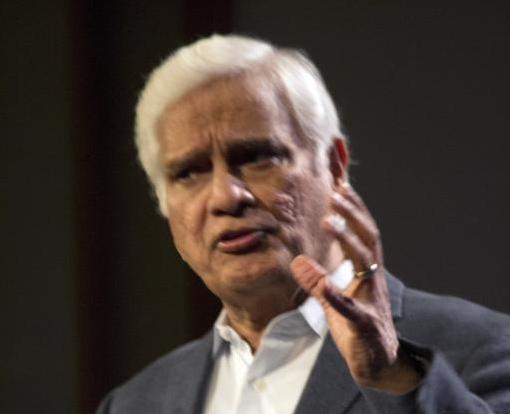Then Zacharias said that one of the difficult questions he keeps getting today is how he can justify sexual morality as taught by Christianity. Here is how he answers them:
“All the questions you ask can only be answered after you have found the answer to the first question: Why you actually exist,” he noted. “And when you find that that relationship with God through Jesus Christ, as I believe, then all the other questions are justified and the answers are forthcoming.”
In addition to meaning, RZIM hears questions about sexuality, in some form, at every forum.
“Sexuality is the toughest one to deal with,” Zacharias conceded, “but let’s remember it this way. It’s a gift, but it’s a gift that has parameters. It is possible to break it. It is possible to find fulfillment in it.”
The Christian scholar points to when people say things to him such as, “If two people really love each other, that’s all that really counts.”
“Well, then I ask ‘Why did you leave it at two? Why did you qualify it by love?'” he adds. “You’re already setting boundaries that sexuality is not without boundaries, so as a follower of Jesus Christ, I take His boundaries as the guidelines to enjoy the gift with responsibility, otherwise you can break it.”
I think that’s a brilliant and perceptive answer! Here are some further thoughts about it.
Although people today are rejecting traditional sexual boundaries–that sex should only be between married couples; that sex should only be between couples of the opposite sex–they still recognize other boundaries. Most people agree that one should not have sex with children. One should not have sex with animals.
Today the major boundary is consent. One should not have sex with someone who does not consent. (Children and animals cannot consent, so that is why those practices are wrong. Lack of consent defines rape. It also defines sexual assault, sexual harassment, and the various violations of decency noted in the #MeToo movement.
Christian sexual morality agrees with all of these boundaries, including consent. (There could be no marriage, in traditional church law, without the consent of both parties, which is why the marriage liturgy requires saying, “I do.”)
But there are problems with consent being the only boundary. For one thing, consent is an act of the will (in line with postmodernism’s pro-choice ethic, in which something is moral only if it is chosen). And the will is an internal motion, which cannot be directly perceived. Thus, today’s legal wrangles over whether there was consent or not.
Also, consent is complicated and multi-leveled. When Harvey Weinstein threatened to ruin a young actress’s career if she didn’t have sex with him and to advance her career if she did, and the actress decided to give in to the pressure, was that consent? Yes, she made her decision. But overall, no, since she was being coerced.
A more workable boundary, which includes these others, would be objective and easily discernible. And that’s what Christian sexual morality gives us.
Photo: Ravi Zacharias by TMDrew [CC BY-SA 4.0 (https://creativecommons.org/licenses/by-sa/4.0)] via Wikimedia Commons














